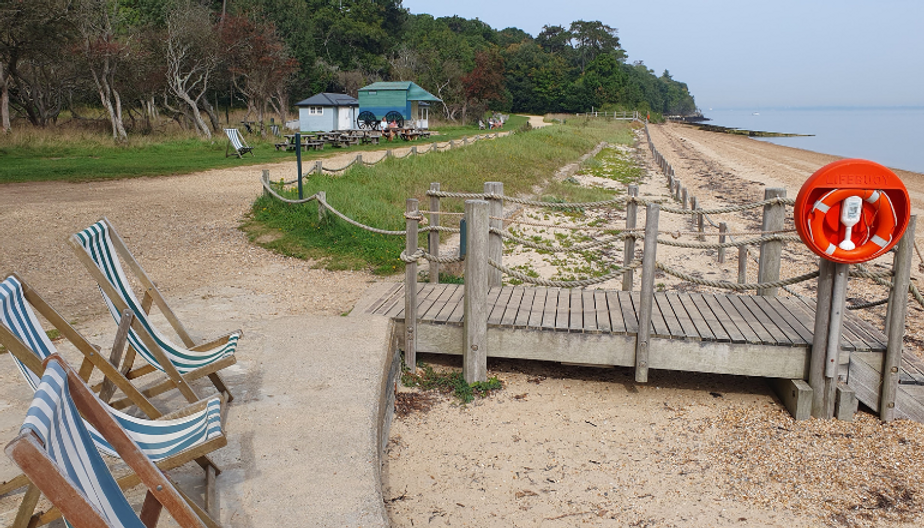
A dispute has erupted between heritage bosses and walking campaigners after plans for the new King Charles III England Coast Path were blocked from crossing the historic Osborne House estate.
English Heritage, which manages the former royal residence, has refused to allow a short, 300-metre stretch of the national trail to pass along its historic beach.
This area is famously where Queen Victoria and her family once swam and bathed.
This decision has sparked criticism from local residents and national walking charities alike.
A ‘Detour Through Danger’

After seven years of debate, Natural England recently proposed an alternative inland route.
This diversion adds two miles to the path between East Cowes and Wootton, forcing walkers onto a narrow pavement next to what the Ramblers label an “unpleasant and dangerous” A3021 road.
The Ramblers, a British walking charity, have condemned the decision.
Jack Cornish, the Ramblers’ Director for England, stated:
“We urgently need English Heritage to rethink its stance on this.
“Instead of supporting the completion of this iconic coastal route, walkers—including families with young kids — are being forced on to unpleasant and dangerous pavements beside busy roads, miles from the sea.”
He emphasised that the path should follow the coast, adding:
“It is common sense: The King Charles III England Coast Path must follow the coast.”
Security Concerns or Missed Opportunity?

According to The Ramblers group, English Heritage claims the coastal path would “negatively impact” its conservation work and pose a security risk to the 10,000 royal items on the estate.
However, campaigners have pointed out that other high-profile heritage sites, such as Blenheim Palace and Balmoral Castle, successfully manage public paths without issue.
The stretch of coastline at Osborne House is a crucial “last piece of the jigsaw” for the 2,700-mile long national trail, which aims to open up England’s entire coastline to public access.
The Isle of Wight Ramblers’ Footpath Secretary, Mike Slater, highlighted the economic benefits, noting that a complete, off-road coastal path could bring an annual £60 million boost to the island’s economy.
David Howarth, former Area Chair of the Isle of Wight Ramblers, added:
“The new National Trail is a gift to the Island.
“We do not want to squander an opportunity to showcase all of our magnificent coast.”
“Despite campaigners suggesting compromises, like fencing or nighttime closures, English Heritage has so far refused to budge.”
Have Your Say
Natural England has now opened an eight-week public consultation on the plans.
The Ramblers are urging the public to participate in the consultation and contact English Heritage, as well as local councillors and MPs, to support their campaign.
The deadline for feedback is October 22nd.
